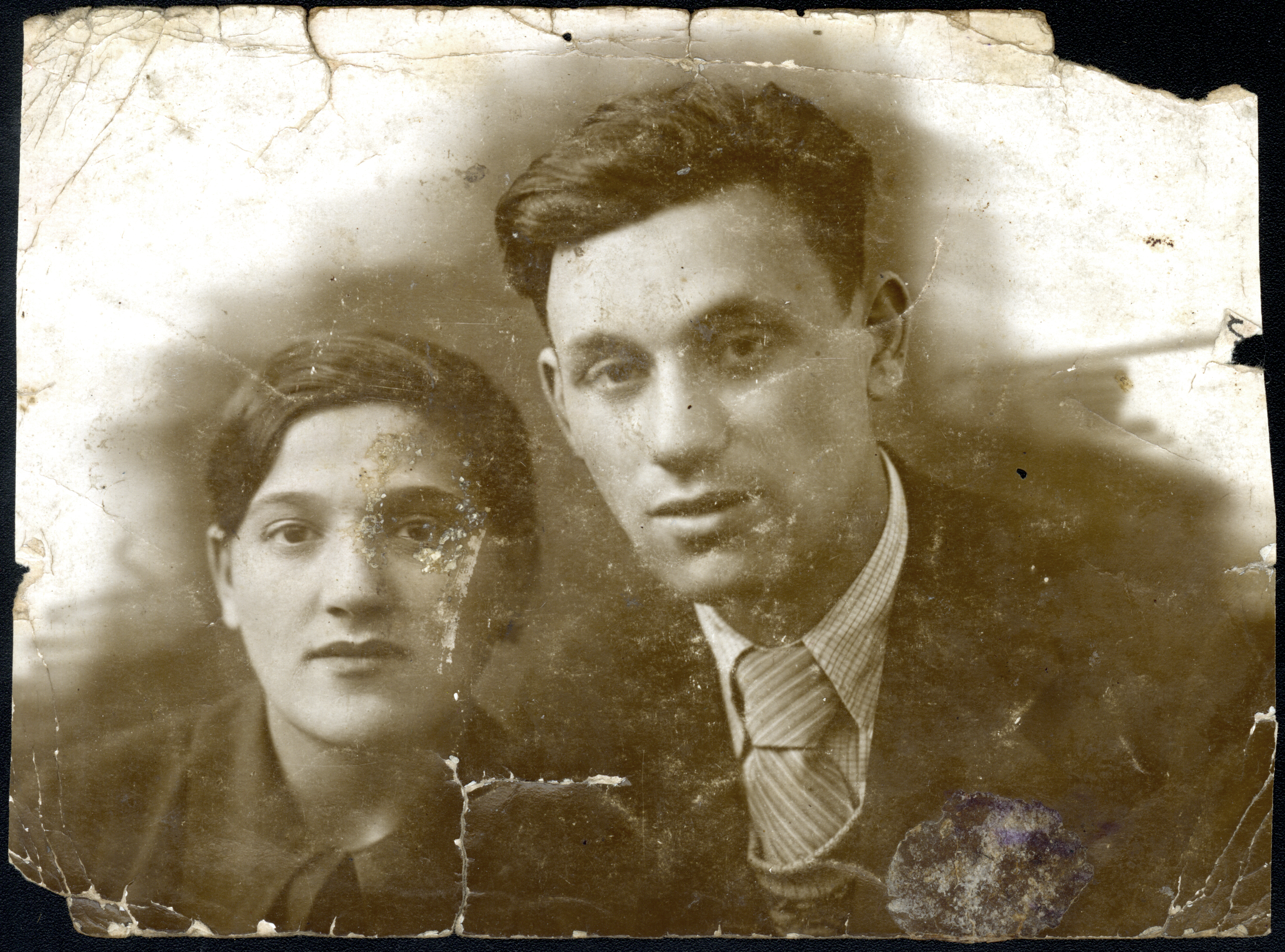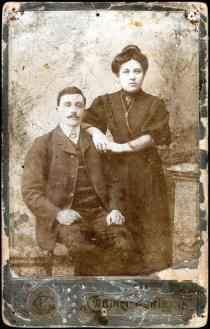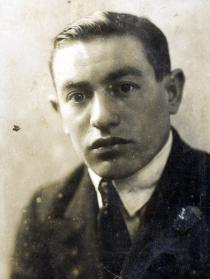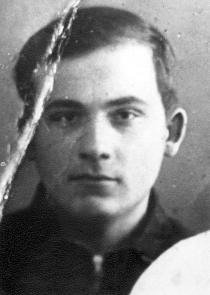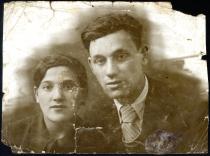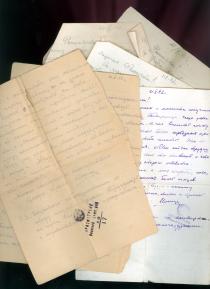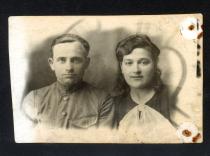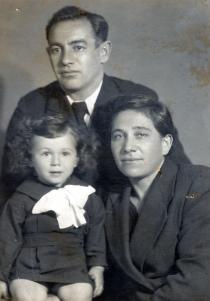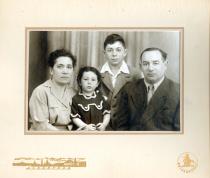This photo shows my aunt and uncle, my mother's sister and brother Lyubov [Lyuba] Borukhovna Livshits (1915) and Evsei Borukhovich Livshits (1911-1942).
My mother had two sisters, Lyuba and Zina, and four brothers, Evsei [Zyama], Senya, Yasha and Grisha. Evsei was the eldest. My grandmother Fanya was a very hardworking woman; she worked day and night. There was never enough money. Grandfather worked on a collective farm, but he usually found time for entertainment as well - outside the family. Grandmother, thus, had an incredibly hard time. She carried absolutely everything upon her shoulders. However, as long as Aunt Zina, the eldest of her daughters, stayed in Bolshaya Lovcha, she, naturally, helped bring up the younger children.
Senya was the first one to leave Bolshaya Lovcha and settle in Leningrad. Grandmother's brother Evsei already lived in the city. Because Senya was a very talented boy, Uncle Evsei invited him to Leningrad to study. It was in 1935-1936. Senya entered the university and then 'dragged' the others to Leningrad: my mum, Grisha, Evsei, and aunt Zina. Aunt Lyuba stayed with her parents in Bolshaya Lovcha. After she finished a Jewish school there, she moved to Rostov and entered a vocational school. Then she worked in a telephone substation. Now, of all mother's large family, only one person is left alive - Aunt Lyuba, Lyubov Borukhovna. She lives in Leningrad now, in Dachny Avenue, she is 87 years old.
During the war, mother's brother Evsei worked near Leningrad, digging trenches. During the siege my mother and Grisha stayed in town. Evsei knew that they were hungry. In Feburary 1942, having collected some food, he went to town from his work to visit Mom and died somehow en route. He didn't reach Mom, nor did he return to where he worked. They learned about it later.. I know about this because mother wrote it under his photo. Evsei was the most handsome of all his brothers and sisters. Mom was left only with Grisha., who was was 18 in 1942. He died of starvation in March 1942. He kept telling Mum that he was very hungry. And she, taking all the ration cards, set off to get some bread. When she returned, he was still alive, trying to tell her something, but his speech was incomprehensible. Most likely, he was taken to Piskarevsky cemetery [the mass burial place of Leningraders who died during the siege]. Mother transported the body with the help of an acquaintance?
